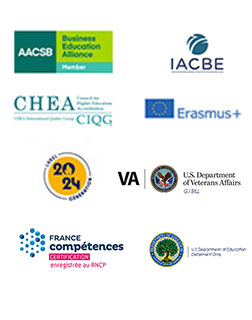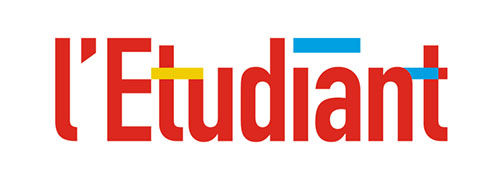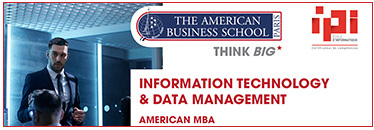
ANALYZING THE ANGLO-SAXON MANAGERIAL MODEL
There is a gap between French and Anglo-Saxon management, to say the least. In fact, works in management sciences have compared these two management styles which differ on many points! Do you know these points of divergence and the strengths and weaknesses of each approach? The American Business School of Paris invites you to find out more about the Anglo-Saxon model, which is attracting more and more French companies.

A COOPERATIVE AND PARTICIPATIVE RELATIONSHIP BETWEEN THE MANAGER AND THE EMPLOYEE
Anglo-Saxon management relies on fruitful and sustained exchanges between managers and employees. In this participative approach, managers are more open to initiatives, criticism and proposals for improvement. They encourage employees to share their ideas in order to gain efficiency, in an approach of continuous improvement. A certain proximity is encouraged, with a more transversal management. These regular exchanges can delay decision making, compared to French-style management. However, the decision is more likely to gain the support of the various involved parties.
In French management, there is still today a certain compartmentalization, with a more or less marked distance between teams and their managers. The work environment can be marked by argumentation, sometimes confrontation. This can therefore lead to difficulties for companies who need to innovate, become more agile and undergo digital transformation.
This brings us to another key difference between French and Anglo-Saxon management. Indeed, Anglo-Saxons show more flexibility and agility to better adapt to the various evolutions of an increasingly turbulent environment. The spirit here is more pragmatic. Facts are preferred to ideas. Decision-making leaves more room for the factual.
This translates into facts by making decisions that follow a pre-established pattern, without major bias. This approach requires the acceptance of error and the de-dramatization of failure. The latter is seen as an excellent way to progress and learn. This is totally different from the French model, which tends to condemn error rather than see it as a sometimes unavoidable step towards future success. French-style management minimizes risk, even if a substantial profit could be made.
PROFESSIONAL EXPERIENCE IS VALUED OVER ACADEMIC SKILLS
Blended learning is at the heart of the Anglo-Saxon managerial approach. In fact, blended or hybrid training, as well as exchanges between juniors and seniors, play a major role in the progress of teams and the company. Thus, the skills acquired during the professional experience are more valued than those learned during the academic training. The professional evolution as well as the salary are terefore determined according to the skills, the profession, the added value brought to the company and other pragmatic criteria related to performance.
Entrepreneurship, or more accurately, intrapreneurship, is another key element of Anglo-Saxon management, which advocates innovation and entrepreneurial freedom. There are many partnerships between start-ups and universities, and job accumulation (or slashing) is not uncommon. The commitment and involvement of employees is sometimes intense, unlike the French model, which places a major emphasis on work-life balance.








